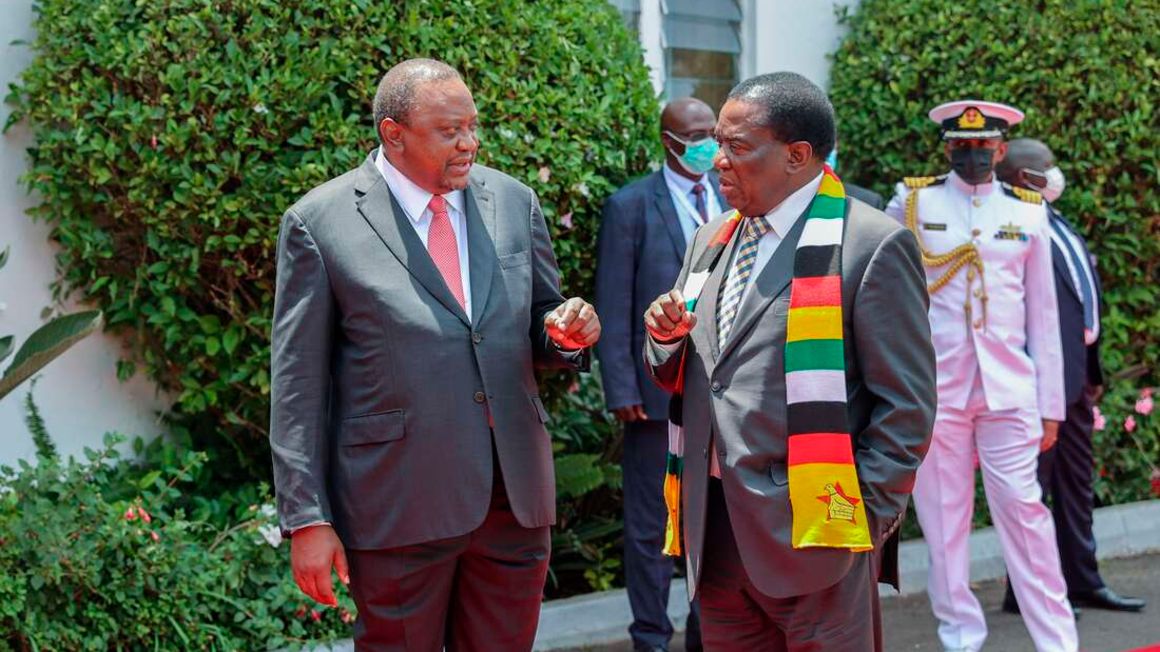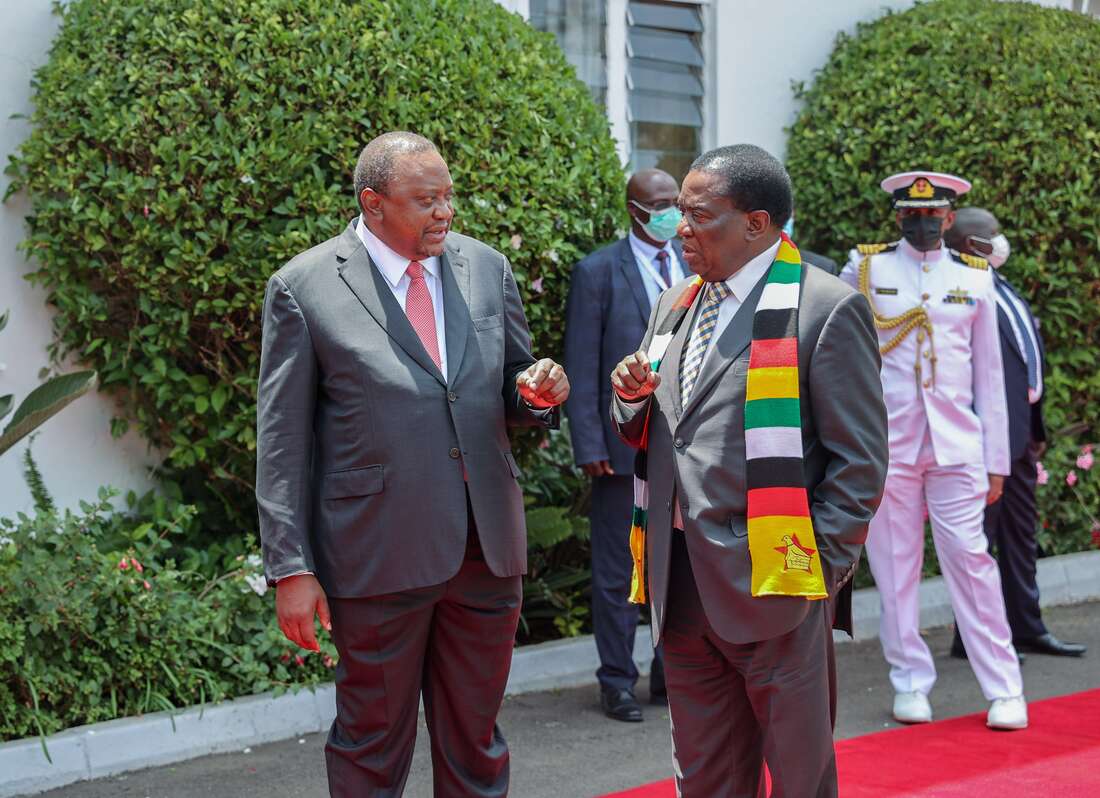MK254
JF-Expert Member
- May 11, 2013
- 31,744
- 48,385

President Uhuru Kenyatta with his visiting Republic of Zimbabwe counterpart, Emmerson Mnangagwa during a press briefing at State House, Nairobi on March 9, 2022. PHOTO | PSCU
Kenya has signed seven bilateral agreements with Zimbabwe even as President Uhuru Kenyatta joined the push for the removal of Western sanctions sapping the economy of the Southern African nation.
During the talks held at State House in Nairobi, Kenya and Zimbabwe signed the bilateral agreements, all memoranda of understanding (MOU) on political and diplomatic consultations, tourism and wildlife conservation, and civil aircraft accidents and serious incidents investigations.
Others were on women empowerment and community development, youth affairs, cooperatives and sports and recreation activities.
“We affirmed the need for cooperation with bilateral commitment at global levels to deal with pandemics of this nature now and in the future. Both Zimbabwe and Kenya are committed to enhance cooperation towards mitigating the adverse effects of climate change and other environmental issues,” Zimbabwean President Emmerson Mnangagwa.
President Kenyatta urged Western countries to scrap the restrictions on Wednesday during a joint press briefing with visiting Zimbabwean leader as the two countries renew their bid to deepen trade and investment.
The European Union (EU) last month renewed its two-decades-old sanctions against Zimbabwe, citing “continued human rights violations and closure of the democratic space.”
Besides the EU, the United States and the United Kingdom have maintained targeted sanctions against Zimbabwe.
“And this we consider to be unfair for these hardships were artificially created and we continue to call on the international community to remove these illegal sanctions,” President Kenyatta said as he attributed Zimbabwe’s long-running economic crisis to the sanctions by Western countries, a position amplified by Harare.
Zimbabwe has been under EU targeted sanctions since 2002 after the late Robert Mugabe won a controversial presidential election.
After Mugabe was toppled in a military coup in 2017, his successor President Emmerson Mnangagwa pushed for the normalisation of ties with the bloc, but this is yet to bear fruit.
Last year the US extended the sanction by one-year sanctions against 141 entities and individuals in Zimbabwe, including Mnangagwa.
The EU argues the situation in Zimbabwe has not changed under President Mnangagwa, hence the move to extend the embargo.
The EU however decided to lift suspended travel bans and asset freezes against Zimbabwe’s Vice President Constantino Chiwenga, army chief Phillip Valerio Sibanda and former first lady Grace Mugabe.
Harare says the US sanctions have been the most devastating. These bar US officials at the International Monetary Fund and World Bank from voting for debt relief or fresh lending for Zimbabwe.
The Zimbabwean leader is leading a delegation for bilateral talks in Kenya.
The African Union and Southern African Development Community have clamoured for the removal of the curbs without success.
bnjoroge@ke.nationmedia.com

Kenya, Zimbabwe ink seven pacts to boost investments
President Uhuru Kenyatta joins the push for the removal of Western sanctions sapping the economy of Zimbabwe.